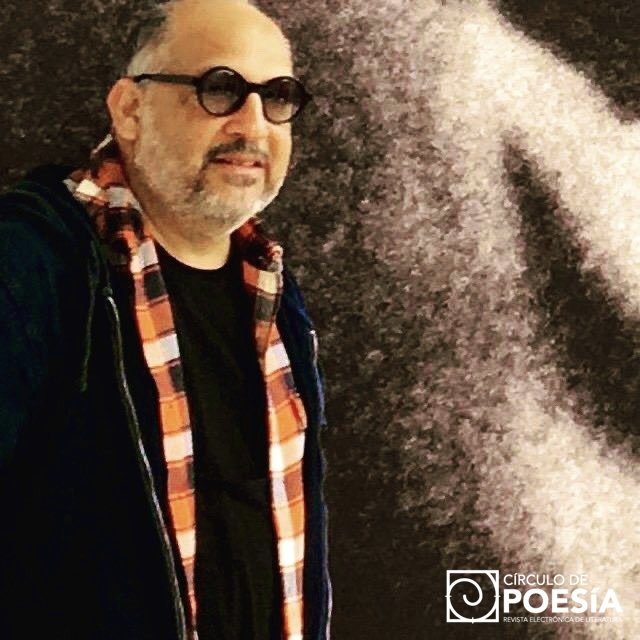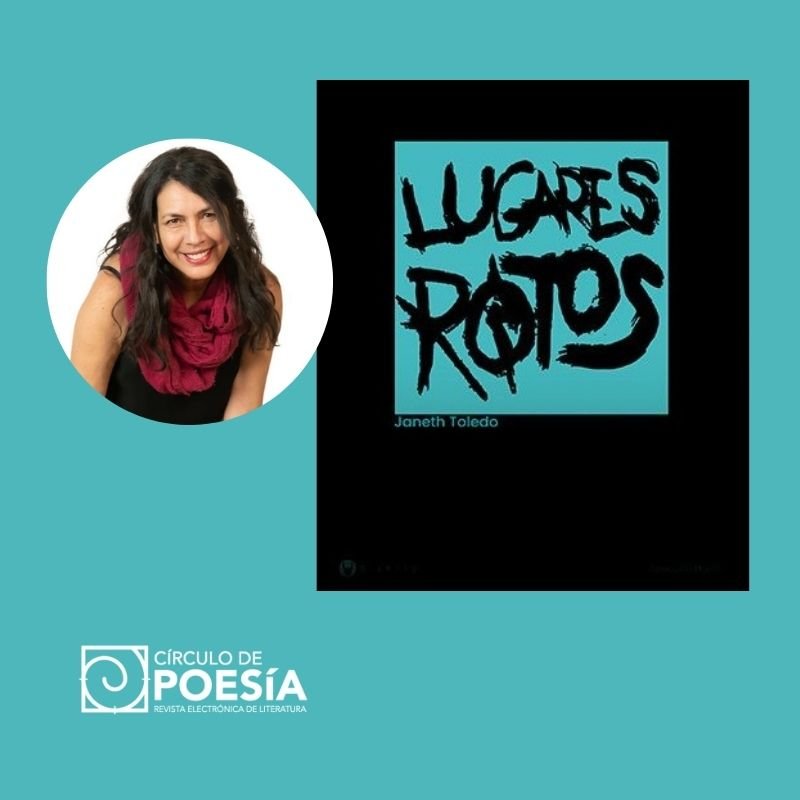Versopolis es un programa que cuenta con el apoyo de Europa Creativa, el propósito que tiene es el de promover la poesía escrita por los jóvenes poetas europeos a través de una serie de festivales con distintas sedes en Europa como los que dirigen nuestros amigos y colaboradores Ales Steger y Mite Stefoski, directores de los festivales Days of Poetry and Wine, en Eslovenia, y el Struga Poetry Evenings, en Macedonia, respectivamente; en Círculo de Poesía creemos en la literatura que están escribiendo estos jóvenes poetas y hemos decidido presentar a cada uno de los poetas que han sido seleccionados en este programa. En esta ocasión presentamos, en versión de Raúl Durán, a la poeta ucraniana Olena Huseinova (1979). A través de sus poemas -que son intensamente autobiográficos- explora la memoria, el conocimiento, la ansiedad, los límites de la esperanza y la realidad, así como la irreversibilidad de la experiencia. Su poesía está comprometida con la lucha por la libertad para las mujeres tanto en sociedad como en la escritura. En 2005, fue distinguida con el segundo lugar del prestigioso premio para jóvenes escritores “Smoloskyp”, que desde los 90’s ha sido punto de referencia para básicamente todas las figuras clave de la literatura ucraniana. Ha publicado los libros Vidkrutyi Raider (2012) y Superheroi (2016). Sus poemas han sido traducidos al inglés, polaco, checo, lituano y ruso.
El día —son ornamento todas
las sombras en la arena— oxidados rosarios
Para no regatear con un mendigo
sobre un cubo de Tebas o el Monte Kadam
debes volverte un bárbaro
La tarde. La gente se reúne
Se sientan donde quieren
No es necesario ya buscar la sombra
Los compañeros cambian
del tinto semidulce
al blanco semidulce
Sus arrugas que fluyen,
como caminos,
cantarán:
“Pronto será el comienzo”.
The day —all shades of sand
Adornments— rusted beads
So as not to haggle with a beggar
about a pail from Thebes or the Mount of Kadam
you need to become a barbarian
The evening. People gather.
They sit where they please
It’s no longer necessary to look for shade.
Companions keep switching between
semi sweet red
and semi sweet white
Their wrinkles flowing,
like roads,
will sing
“Son it’ll begin”.
La ciudad pudo llamarse Zherono
Pudo llamarse Siracusa
Pudo no tener nombre
(Presiono con mi dedo
el mapa imaginario del mundo
y justo ahí estás, bajo mi yema)
Ahora no me importa
si el vino era
tinto o blanco
Hoy
podría
convertirlo en agua
o jugo de granada
(hecho en casa)
Hoy
podría
diferenciar
si la “o” es sólo llanto
o si la “o” es el principio de un nombre
(de oído)
Hoy
podría
ocultar
(hasta la próxima vez)
el atlas color cereza
Y los trazos
de los caracteres chinos
largos como el camino a la Montaña Windy.
The city could have been called Zherono
It could have been called Syracuse
It could have no name at all
(I press my finger
to the imaginary map of the world
and you’re, there, right beneath my fingertip)
Now I don’t care
whether the wine was
red or white
Today
I could
turn it into water
or pomegranate juice
(homemade)
Today
I could
differentiate
when the “o” is only a cry
or when the “o” is the beginning of a name
(by ear)
Today
I could
hide
(until the next time)
the cherry-colored atlas
And the strokes
of Chinese hieroglyphs
long as the road to the Windy Mountain.
Los titanes lloran gigantes lágrimas
mientras colocan sus desnudos hombros
Debajo de los balcones
donde los jóvenes
apuestos fuman
Incluso cuando llueve
se sientan
en sillas de mimbre
Y sus manicurados dedos
se amarillecen
por el tabaco francés
Las serpientes de cobre
no te salvarán
cuando la lluvia arrecie
y de los caballeros del Puente Charles
el más joven lance su espada al río
La puerta está abierta
sálvese
quien pueda
y salven
la galería Dresden.
The titans cry giant tears
as they put their bare shoulders
Underneath the balconies
where the handsome
youngsters smoke.
Even in the rain
they sit
in woven chairs
And their manicured fingers
turn yellow
from the French tobacco
Copper snakes
won’t save you
when it starts to rain
and the youngest of the knights
of the Charles Bridge
is throwing the sword into the river.
The gate is open
save your
selves
and
the Dresden gallery.
Sí, amor, esto es México.
Vinimos a pie.
¿No recuerdas? ¿No lo crees?
Honestamente,
conseguimos un auto
en San Diego.
Yo quería un Dodge Aries,
pero como el de casa, sólo tú
confiaste en Allan Mullally.
El Ford Granada 1982
era color café con leche
y por eso hice las paces con él —
todo el camino a México,
Cuando cruzábamos la frontera
el motor se averió
(¿el molino de viento, el molino de agua,
el vaivén del peso?)
Dejamos el auto.
Anduvimos a pie
por el Desierto de Gila.
Cubrí mi cabello
con una bandana,
me quité mis botas rojas
y fui tras tus huellas
paso a paso.
Volteaste
y me lanzaste besos
con un millón de los granos
de arena más minúsculos,
y gritaste:
“Desde este ángulo te pareces
a la esposa de Gaspar de Portolá, mi amor”
“¿Quién es ella?”
“La señora Portolá, imagino.”
Dormimos en el desierto
aunque la ciudad de los Álamos
ardía en el horizonte.
En la mañana junté agave y dije:
“Haré mezcal para ti”
“¿Por qué no tequila?”
“Porque no tenemos azúcar.”
Cuando el Mar de Cortés
nos golpeó el rostro
con su brisa de yodo y sal
dijiste:
“Detente”
Me quité mi blusa
y mis jeans.
Besaste mis labios,
me rodeaste con tus piernas,
me acariciaste,
más cerca,
me apretaste,
me estrechaste en tus brazos.
Esparciste la arena húmeda de El Vizcaíno
en mis senos
y el interior de mis muslos.
“Sí, amor, esto es México,
la Laguna de Scammon —
la gente no puede estar aquí.”
“Sólo esperamos —
a los lobos marinos,
las tortugas marinas,
las ballenas grises,
las ballenas azules
las focas moteadas,
no temas, mi amor.”
Yes, my love, this is Mexico.
We came here
on foot.
Don’t you remember? Don’t you believe?
In all honesty,
We got a car
in San Diego.
I wanted a Dodge Aries,
but just as at home, you trusted
Alan Mullally alone.
The 1982 Ford Granada,
was the color of coffee with milk,
and for this I made peace with it —
all the way to Mexico.
When we were crossing the border,
The engine
broke
(the wind wheel, the water wheel,
the swinging weight?)
We left the car.
We walked on foot
across the Gila Desert.
I covered
my hair with a bandana,
took off my red boots,
and treaded right behind you
step by step.
You turned around,
and blew
kisses at me,
with a million of the tiniest sand grains,
and you yelled:
“From this angle you resemble
the wife of Gaspar de Portola, my love.”
“Who is she?”
“Mrs Portola, I think.”
We slept in the desert,
although the city of Alamos
was alight with fires on the horizon.
In the morning I gathered some agave and said:
“I’ll make Mezcal for you”
“Why not tequila?”
“Because we don’t have any sugar.”
When the Sea of Cortez
hit our faces with
a breeze of iodine and salt,
you said:
“Stop”
I took off my t-shirt
and jeans.
You kissed my lips,
entangled in your legs,
caressed,
drew closer,
held tight,
cuddled.
You smudged the wet sand of El Vizcaino
on my breasts
and my inner thighs.
“Yes, love, this is Mexico,
The Scammon’s Lagoon —
People cannot stay here.”
“We’re just waiting —
for the sea lions,
the sea turtles,
the grey whales,
the blue whales,
the common seals,
don’t be afraid, my love.”





